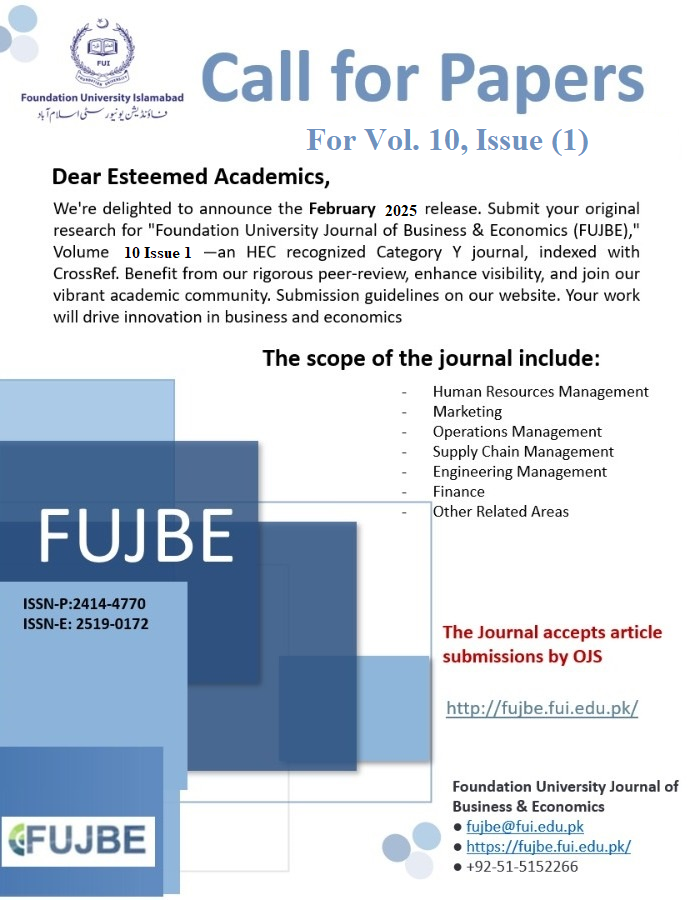Enterprises Growth and Monetary Policy Asymmetric Effect: Evidence from Pakistan
DOI:
https://doi.org/10.33897/fujbe.v7i1.538Keywords:
Non-Financial Firms, Monitory Policy, Firm’s Growth, Added valueAbstract
This study investigates the impact of monetary policy on the growth of non-financial firms in
the case of Pakistan. A sample size of 45 companies from different sectors has been taken.
The data set taken for this study ranges from 2001 to 2016 while it is annual in nature. The
study uses a GMM model for the estimation process. The monetary policy variables include
interest rate, exchange rate, and money supply. The study showed different results regarding
different sectors, which includes leather and tanneries and glass and ceramics interest rate
have a negative relation with the 6 selected firms of these sectors. The other sectors have
positive and significant results with any change in interest rate. Food and personal and glass
and ceramics have insignificant results with any change in Exchange rate. The coefficient of
Sugar, Refineries, Transport, and chemicals have negative signs and results are steady with
the study. The third variable money supply has mixed result in different sectors, some of
which shows positive result while some are showing a negative association with the money
supply. Synthetic and rayon, Refineries, fertilizer cement, and automobile have negative
relations while the rest have been found to have a positive relation.



